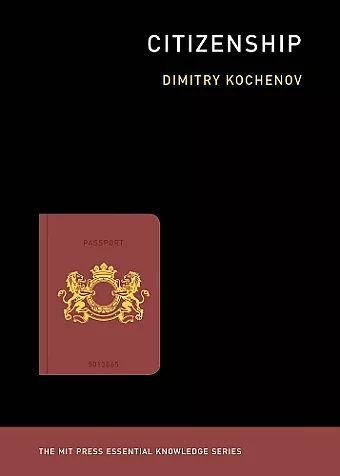Citizenship
Rethinking the role and implications of citizenship today
Format:Paperback
Publisher:MIT Press Ltd
Published:12th Nov '19
Should be back in stock very soon

Dimitry Kochenov's Citizenship critiques the glorified narrative surrounding citizenship, revealing its role in perpetuating inequality and exclusion.
In Citizenship, Dimitry Kochenov presents a thought-provoking exploration of the concept of citizenship, challenging the conventional narrative that often celebrates it as a beacon of liberation, dignity, and nationhood. Instead, he reveals a more troubling reality: citizenship is frequently a tale of complacency, hypocrisy, and domination. This critical examination sheds light on how citizenship can serve to flatter those who possess it while demeaning those who do not, highlighting the inherent inequalities within the system.
Kochenov delves into the historical and contemporary significance of citizenship, offering a comprehensive overview of its evolution and the factors that shape its current role in society. He meticulously analyzes four essential components: status, rights, duties, and politics. Through this lens, he questions how citizenship is granted, the rights associated with it, the responsibilities expected of citizens, and the political implications of citizenship. By dissecting these elements, Kochenov reveals the complexities and contradictions that underpin the notion of citizenship today.
Ultimately, Citizenship serves as a critical reminder that while the ideals of dignity and equality are often associated with citizenship, they are not universally accessible. Kochenov warns that citizenship can become a legal instrument that perpetuates exclusion and violence, leaving many individuals outside the protections and privileges it ostensibly offers. This book is essential reading for anyone seeking to understand the deeper implications of citizenship in our modern world.
"[A] spirited contribution to the MIT Press’s Essential Knowledge series. Kochenov sees the institution of citizenship, not its byproduct of statelessness, as the real problem. He does not hold back his disdain, defining citizenship as ‘a heritage glorifying servility, racism, sexism, and arbitrary exclusion,’ a tool for ‘simplifying the world’ and ‘rendering people governable,’ a gateway to complacency, intellectual laziness, and oppressive categorizations. Statelessness is a problem only because of how unequal and arbitrary the institution of citizenship is to begin with: it is assigned at birth and seldom earned, so most people never have a say in it. Further, the ‘mythology of the equality of different nationalities’ only makes things worse: it leads us to believe that any citizenship should be sufficient for meeting the needs of individuals." –The New York Review of Books
"Kochenov's book should be a wake-up call for constitutional and international theorists and practitioners to promote an agenda for redefining citizenship as well as the structures governing it." –International Journal of Constitutional Law
ISBN: 9780262537797
Dimensions: 178mm x 127mm x 22mm
Weight: unknown
344 pages